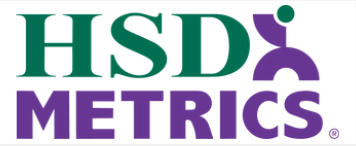“500 to 700 hours of expected OT a year is unreasonable. I spent 2/3 of my life at work. Senior managers never spend that much time at the facility, and when the manager’s nickname is ‘MIA’ because he is never around, it is indicative of a problem.” – Comment from an ExitRight® Interview*
As a manager, you balance your daily work tasks, projects, clients, and more, all while trying to lead your team. It is easy to fall into the trap of thinking that if the team has been doing well on paper, there is no need for you to interfere, but that could lead to your employees walking out the door. With a large workload, perhaps the only way the employee has been able to get everything checked off the to-do list is by staying until 8 pm nightly. Even if the particular individual doesn’t mind the overtime, the perception that the extra work is underappreciated will fizzle out any extra motivation.
When business and profits are great, or when there’s a big push to reach the monthly goal, it is easy to lose sight of how the accumulation of extra hours each week impacts the employee’s energy and commitment to the organization. Using our ExitRight® employee exit interviews, we were able to discover the top 13 causes of controllable turnover; taking the 8th spot was “an unreasonable workload.” The combination of supervision failing to notice or appreciate the overtime and the difficulties the overtime created for the individual’s work-life balance ultimately resulted in the person seeking other employment.
Talking with your employees and understanding their workload will help you retain the talent. If they are consistently working overtime, figure out how you can help. Does the work need to be divided between several employees? Should you look into hiring a new team member? Are there any deadlines that are able to be moved? They will not only appreciate the acknowledgment for the hard work they’ve been putting in but also knowing that you truly desire to help them achieve a better work-life balance. These meetings will also create an opportunity for the individuals to express any workplace concerns they may have, facilitating a dialogue of ideas, and showing that they are valued members of the team.
While keeping a balanced workload is important, your managerial role as the team leader is vital. According to over one million completed ExitRight® interviews, supervision is the number one cause of turnover across all industries. Effective supervision also requires balance, as too much may result in employees feeling micromanaged, but too little leaves your team without guidance or support. Regular meetings with each individual discussing his or her goals, both short- and long-term, how the day-to-day workload has been, and the ways in which the work has impacted the team helps provide a clear view of progress. Professional feedback is required for any growth to occur, so plan one-on-ones with your employees regularly.
Don’t forget that recognition and feedback can be provided between the scheduled meetings, as well. Managers have a responsibility to examine overtime practices and workload issues and remain present and accessible as the leader, walking around the team each day or keeping the office door open. It is no doubt that business goals are important, but they will be impossible to achieve with underappreciated, burnt-out employees.
Of course, even the best management is not immune to employees moving on to other companies, but performing exit interviews with HSD’s ExitRight® helps you understand the underlying causes so they may be examined to increase retention, work efficiencies, and commitment of employees. Contact us today for more information and help lower your employee turnover rate.
*We provide comments we have received through exit interviews conducted in the workplace. All company names and interviewee names are kept confidential.


